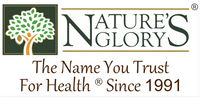We’ve discussed why we love organic soap and its benefits already. Organic soaps contain natural, certified organic ingredients that we know are luxurious for our skin.
While soap is meant for cleaning, it doesn’t necessarily mean using chemicals to get rid of dirt and grime. Our skin is the largest organ in the body, so we should be more mindful of what we put on it, starting with the soaps we use.
But what does organic soap really contain that makes it so good for our skin and body?
Ingredients in Organic Soap
When talking about organic soap, we are referring to soap made from certified organic products. There are several components that are needed to make soap, but each of them should be made from organic products.
Base oils
The majority of your organic soap base comes from the base oils - which are organic plant-based oils like olive oil, almond oil, coconut oil and hemp oil. As most of these oils are edible too, some manufacturers use food-grade quality oils for the purest quality. If it’s safe enough to consume these oils, it should be safe enough to put on your skin as well!
Essential Oils
Essentials oils are fragrant compounds that are extracted from plants and used as natural fragrances in organic soaps. Although they are highly concentrated, when mixed with other oils like your base soap oil, these pure essential oils are much safer to use than other artificial fragrances used in personal care products.
Also, essential oils are great for those who have sensitive skin, as they are less likely to irritate the skin and trigger allergies in certain people.
Glycerin
Glycerin is a thick, transparent and non-toxic liquid and a natural byproduct from saponification or soap making process. It occurs when oil reacts with alkaline to form soap and glycerol. Some soapmakers remove the glycerin, as it can be used in other applications, including cosmetics and pharmaceuticals.
Lye
Lye is the only substance in your organic soaps that are not ‘organic’. However, it is a natural part of the saponification process, where soap is made through a chemical reaction between lye and oil. It should be noted though that if done properly, there is no lye left in the soap, once the soapmaking reaction is complete.
What’s Not in Organic Soap
Surfactants
Surfactants are chemicals that contain cleansing properties for soap. Surfactants consist of long molecules with two different ends - one attracts water, the other attracts dirt and oil. They aren’t necessarily bad for you. However, the issue comes when one of the surfactants is Sodium Lauryl Sulfate (SLS). It is made from coconut oil, but it is contaminated with toxic byproducts when manufactured. It has been linked to skin irritation, toxicity, endocrine disruption and cancer.
Parabens
Paraben is short for ‘parahydroxybenzoate’. They are a type of preservative used in cosmetic and personal care products to prevent the growth of mold and bacteria.
Parabens should be avoided because they are linked to reproductive issues and cancer, as they act like estrogen in the body. The most common parabens to avoid are butylparaben, methylparaben and propylparaben.
Artificial Fragrances
The majority of artificial fragrances are derived from petroleum. They can trigger allergic reactions, migraines, asthma attacks, nausea, eczema, and a whole host of other sensitivities. The thing about artificial fragrances is that they do not need to be disclosed, as they are part of the product’s trade secret.
As a consumer, you do not have access to the ingredients that manufacturers use to create these fragrances, which could be these toxic substances - parabens, phthalates and synthetic musks. These chemicals can cause damage to our organs, disrupt hormones and even lead to cancer.
Benefits of Using Organic Soap
The best way forward to ensure that your skin doesn’t come into contact with toxic compounds is through using organic skincare products like organic soap. Here are just some of the benefits of using organic soap:
The Blessed Soaps® range of organic soaps are made from certified organic, non-toxic ingredients, including coconut oil, olive oil, essential oils, aloe leaf juice, sunflower seed oil, shea butter, potassium hydroxide, citric acid. As mentioned above potassium hydroxide or lye is a byproduct of the saponification process, but it does not remain in the finished product.
Furthermore, all ingredients, manufacturing and packaging processes conform with the Approved Cosmetics standards of NASAA - one of Australia’s most stringent organic certifying bodies. There are also no parabens, dimethicones, SLS, artificial colours or fragrances included.
You can rest assured that Blessed Soaps® organic soaps are safe and non-toxic to use for the whole family. Check out our whole range of different scents of Blessed Soaps® organic soaps here.
